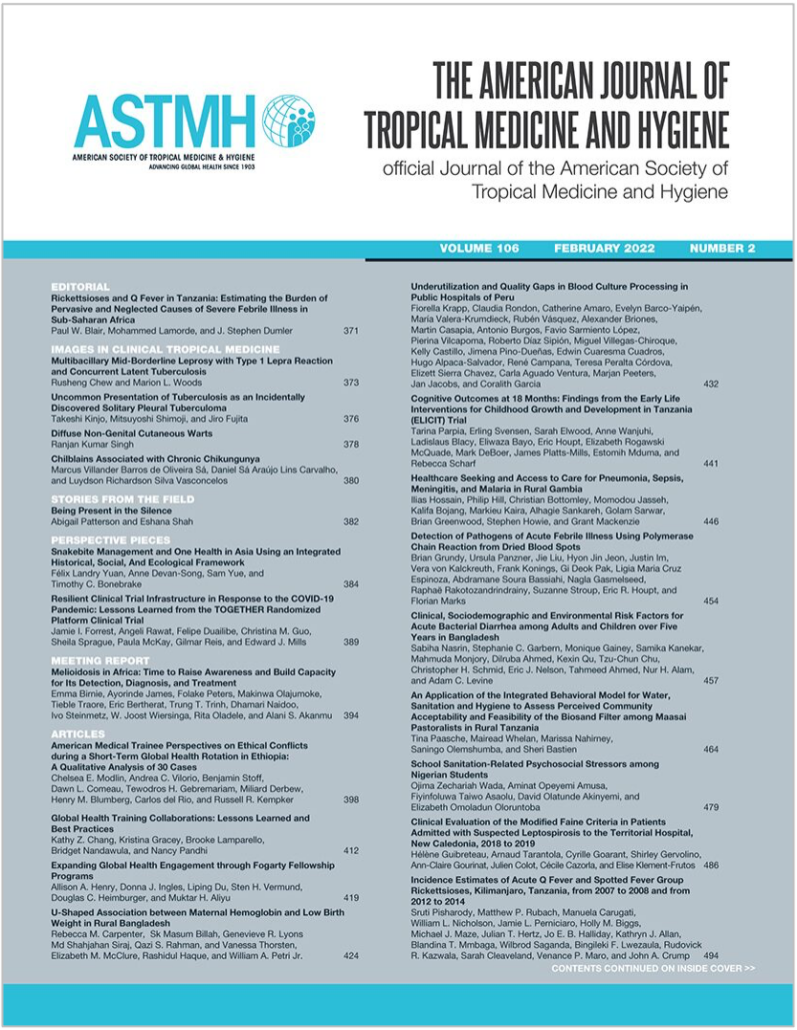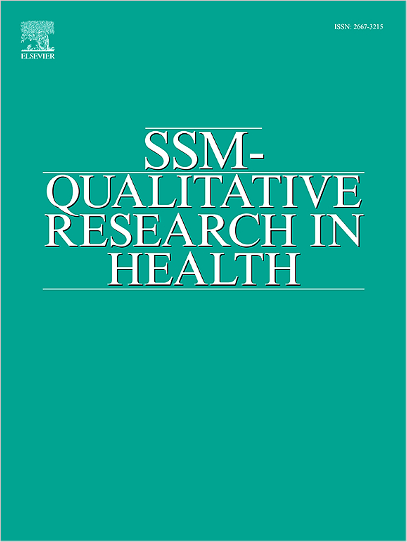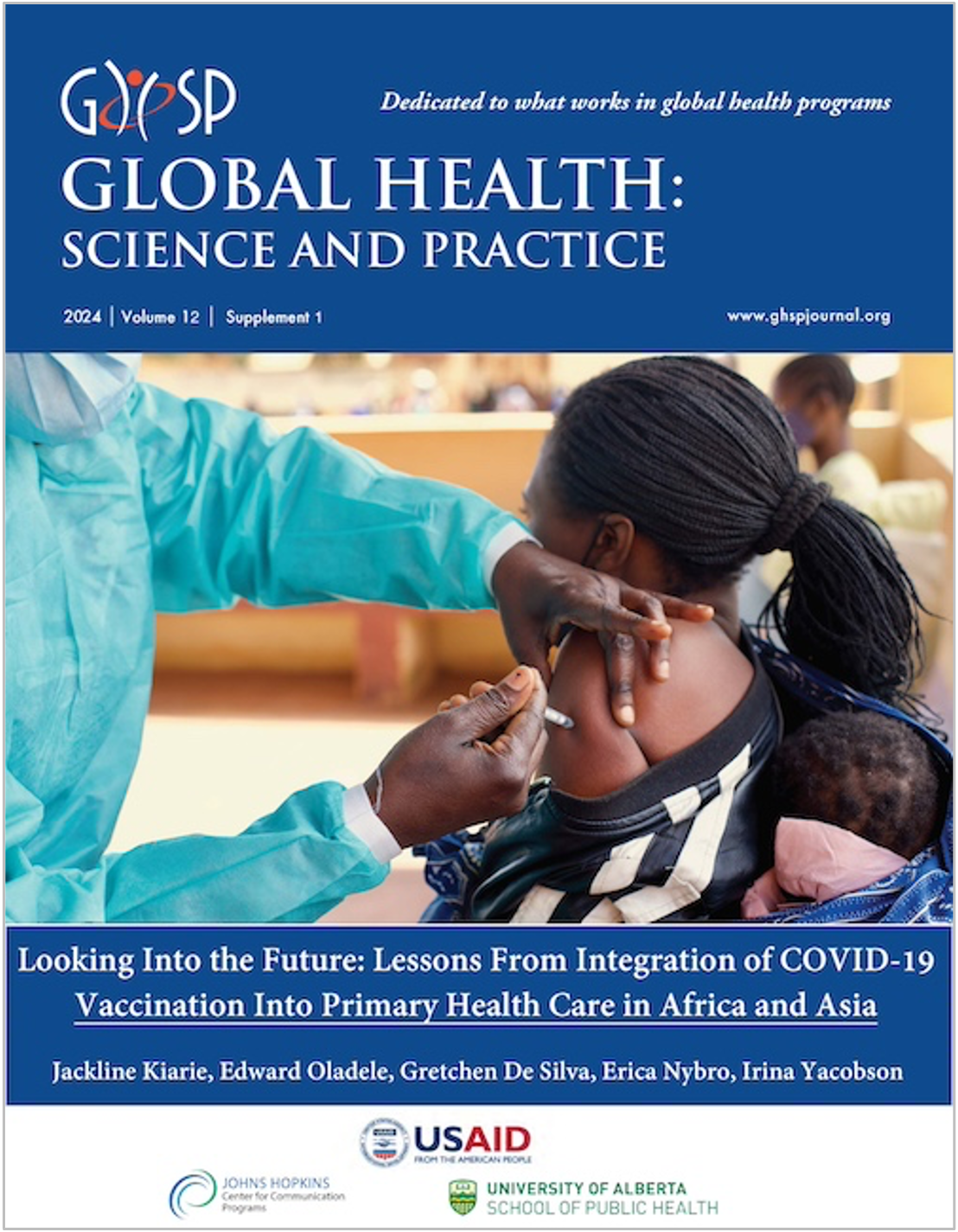From 2017 to 2025, Breakthrough ACTION transformed the social and behavior change (SBC) landscape through its substantial thought leadership and research. With more than 30 peer-reviewed journal publications, this body of work provides compelling evidence on what works in SBC across a range of health and development topics. These articles showcase the project’s contributions to advancing knowledge in areas such as family planning, malaria, nutrition, provider behavior change, and the COVID-19 response, using innovative methodologies like human-centered design, digital strategies, and behavioral economics. This collection serves as a vital resource for program designers, policymakers, researchers, and SBC practitioners seeking proven strategies and scalable interventions that improve health outcomes.
A spreadsheet of all peer-reviewed publications that can be sorted by technical areas is available for download.



LEARN MORE
ARTICLES BY PRIMARY TECHNICAL AREA
COVID-19
- “The label, it sticks to your skin—you had COVID”: Layering stigma and changes over time onto the Extended Parallel Process model in the context of COVID-19 risk communication in Côte d’Ivoire
- “In our culture, if you quarantine someone, you stigmatize them”: Qualitative insights on barriers to observing COVID-19 prevention behaviors in Côte d’Ivoire
- Identifying novel COVID-19 rumours through a multi-channel approach
- The influence of celebrities and religious leaders in addressing rumours on social media
- Perceptions of the COVID-19 vaccine and other adult vaccinations in Malawi: A qualitative assessment
Family Planning
- Elevating social and behavior change as an essential component of family planning programs
- Evaluation of the Confiance Totale campaign in Togo: Associations between campaign exposure and family planning outcomes of interest
- Six recommendations for provider behavior change in family planning findings
- A qualitative exploration of how a community engagement approach influences community and health worker perceptions related to family planning service delivery in Togo
- Family planning demand and service delivery during COVID-19 in Burkina Faso & Togo: Results from a qualitative study
- Estimating the cost of the design, production, and dissemination of social media videos for social and behavioral change: Evidence from Merci Mon Héros in Niger and Côte d’Ivoire
- Evaluating a youth-designed sexual and reproductive health mass and social media campaign in Côte d’Ivoire: triangulation of three independent evaluations
- Strengthening the Merci Mon Héros Campaign through adaptive management: Application of social listening methodology
- Vasectomy provider decision-making balancing autonomy and non-maleficence: Qualitative interviews with providers
- Mothers Time: A cluster randomized controlled trial of the effects of a community-based cognitive behavioral therapy intervention on postpartum mental health and family planning in Northwest Ethiopia
Malaria
- Human-centered design process and solutions to promote malaria testing and treatment seeking behavior in Guyana hinterlands
- Ideational factors associated with net care behaviour: A multi-country analysis
- Improving malaria control by understanding human behaviour
- Malaria care-seeking and treatment ideation among gold miners in Guyana
- Malaria prevention and care seeking among gold miners in Guyana
- Understanding psychosocial determinants of malaria behaviours in low-transmission settings: A scoping review
- When knowledge is not enough: Applying a behavioral design approach to improve fever case management in Nigeria
- Impact of a social and behavior change campaign and volunteer malaria tester program on malaria care seeking among gold miners in Guyana
- Malaria-related psychosocial factors, past antenatal care–seeking behaviors, and future antenatal care–seeking intentions by maternal age in Malawi and Democratic Republic of the Congo
Mental Health
Zika
- A qualitative study of community perspectives surrounding cleaning practices in the context of Zika prevention in El Salvador: Implications for community-based Aedes aegypti control
- Community perspectives on Zika virus disease prevention in Guatemala: A qualitative study
- Evidence-based process for prioritizing positive behaviors for promotion: Zika prevention in Latin America and the Caribbean and applicability to future health emergency responses
- The role of gender in Zika prevention behaviors in the Dominican Republic: Findings and programmatic implications from a qualitative study


